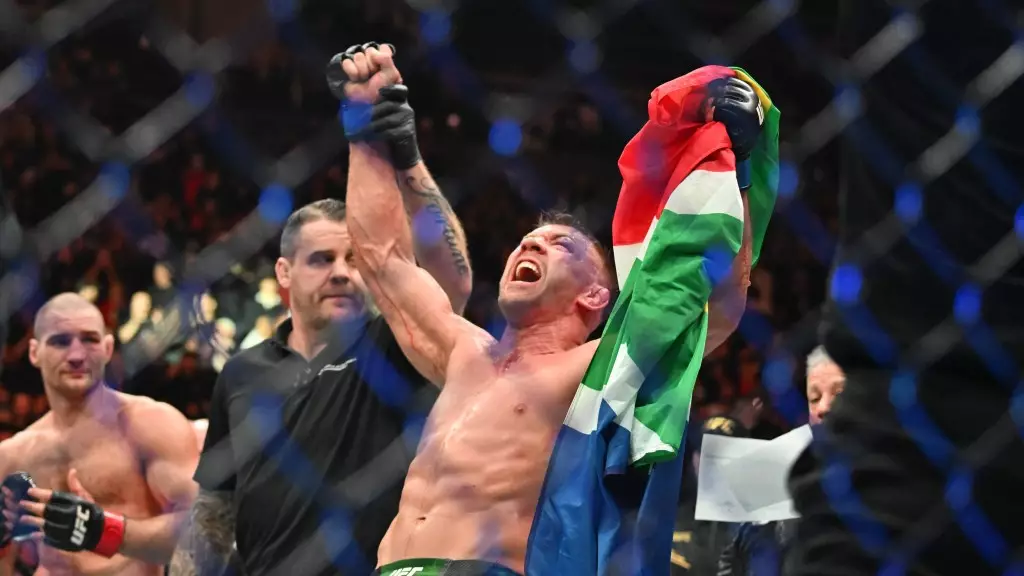The UFC middleweight division is currently a hotbed of contention, featuring fighters who are not only skilled but also highly opinionated. Recently, Dricus Du Plessis solidified his hold on the title after defeating Sean Strickland by a narrow split decision at UFC 297. This loss has left Strickland, a seasoned fighter with a record of 29 wins and 6 losses, adamant that he deserved the victory despite the judges’ decision. His frustration is palpable as he declared his intention not to compete unless the fight stakes are a championship title.
In the interim, Strickland rebounded in June with a decision victory over Paulo Costa, further reaching for contention in a competitive landscape. However, the voice of Du Plessis’ coach, Morne Visser, has painted a different picture regarding future title fights, suggesting that Strickland is currently out of the title picture, a claim that speaks volumes about the dynamics within the upper echelons of the UFC middleweight rankings.
After his successful title defense against Israel Adesanya at UFC 305, Du Plessis appears to be on the trajectory of defending his title again soon. Visser has stated that they are aiming for a February return in Sydney, setting the stage for what could be a monumental fight. The focus, he claims, is on Robert Whittaker, provided Whittaker can overcome the formidable challenge posed by Khamzat Chimaev at UFC 308. This potential matchup creates an intriguing scenario where Whittaker, equipped with momentum and experience, could become next in line for a title shot.
Visser’s confidence in Whittaker winning against Chimaev indicates a strategy rooted in careful assessment of the competitive landscape. “If Whittaker wins, he’s the guy,” Visser noted, suggesting that the fight is not merely about individual skill levels but also about the tactical positioning within the division.
Despite Strickland’s win over Costa, his path back to title contention seems strewn with obstacles. Visser’s comments imply that while Strickland is seeking a title fight, the reality is that fighters like Whittaker, who have proven track records and multiple wins, are prioritized for higher stakes. Strickland’s one-off victory raises questions about consistency and resilience within the sport—a reminder that in MMA, a single performance does not grant automatic access to title shots.
What this means for Strickland is the necessity of a comprehensive plan moving forward, knowing that the landscape is consistently evolving. This also speaks to a broader theme in combat sports where fighters must not only work on their skills but also manage their public personas and negotiations tactically to remain relevant in a brutal competitive environment.
Should Whittaker indeed prevail over Chimaev, the implications for Du Plessis are significant. As Visser pointed out, having defeated both Strickland and potentially Whittaker could solidify Du Plessis’ reign as a formidable champion. Conversely, should Chimaev strike out unexpectedly, that opens potential avenues for Du Plessis to face the unbeaten contender later on.
Ultimately, the middleweight title race showcases the intricate interplay of skill, strategy, and timing in the UFC. As fighters prepare for upcoming bouts, fans are left to speculate on the outcomes and dynamics, highlighting the unpredictable yet captivating nature of mixed martial arts. The future may hold unexpected twists, but one thing is for certain: the competition will remain fierce, and every win carries weight, setting the stage for unforgettable matchups in the octagon.

